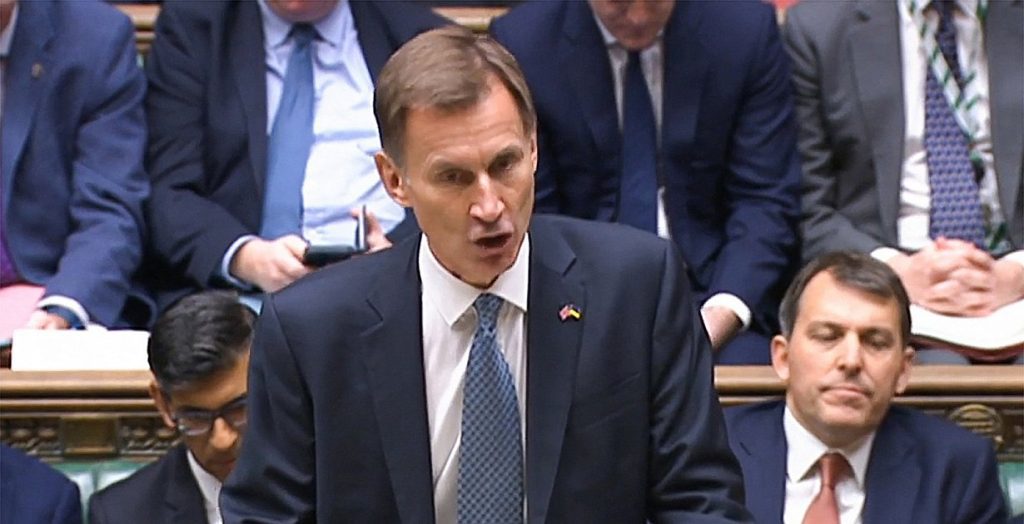The new British government headed by Prime Minister Rishi Sunak wants to plug deep holes in the budget with a restructuring plan. Chancellor of the Exchequer Jeremy Hunt presented his financial plans on Thursday. This aims to fill a budget gap of around £55 billion (about €62.8 billion) over the next few years. Approximately half of this must be met on the tax side. Among other things, taxes on excess profits of oil and gas companies will be increased and electricity suppliers will be required to pay in the future. The tax burden on higher earners is also increasing.
The threshold for paying the highest rate of income tax will drop from £150,000 to £125,140 per annum. Hunt stressed that it is a matter of asking more of those who have more. “Today we are unveiling a plan to address the cost of living crisis and rebuild our economy,” the finance minister said.
Radical change of course to Liz Truss
He had announced “tough but necessary” decisions that would also help curb rampant inflation on the island. The path of austerity is a drastic change of course after a short reign of Sunak’s predecessor, Liz Truss, sparked turmoil in bond markets with fiscally unsecured tax cut plans, which only blinked after central bank intervention.
Great Britain stands on a mountain of debt of £2.45 trillion (about €2.8 trillion). With his restructuring path, Hunt wants to make sure that lost investor confidence is returned and that state funding costs are under control. “Trust doesn’t come for free,” Hunt said. “We conservatives don’t leave religion to the next generation.” The finance minister said the UK economy was already in recession, according to the UK’s independent budget body. In 2023, economic output is expected to contract by 1.4%. The central bank fears that the recession could last for years.
“We’ll weather the storm,” Hunt said. He talked about difficult decisions that ensure stability, reduce inflation and balance the national budget. This also includes significantly reducing public spending in some areas. For financing, the excess profits tax for energy companies will be increased from 25 to 35 percent. The Chancellor of the Exchequer has also announced increased spending, for example on struggling NHS health services and schools. (reu, apa, dpa)

“Food practitioner. Bacon guru. Infuriatingly humble zombie enthusiast. Total student.”








More Stories
Kyiv: Russian Kursk offensive halted
US Presidential Election: Former US Government Officials Warn Against Donald Trump's Election
Netherlands wants to leave asylum system